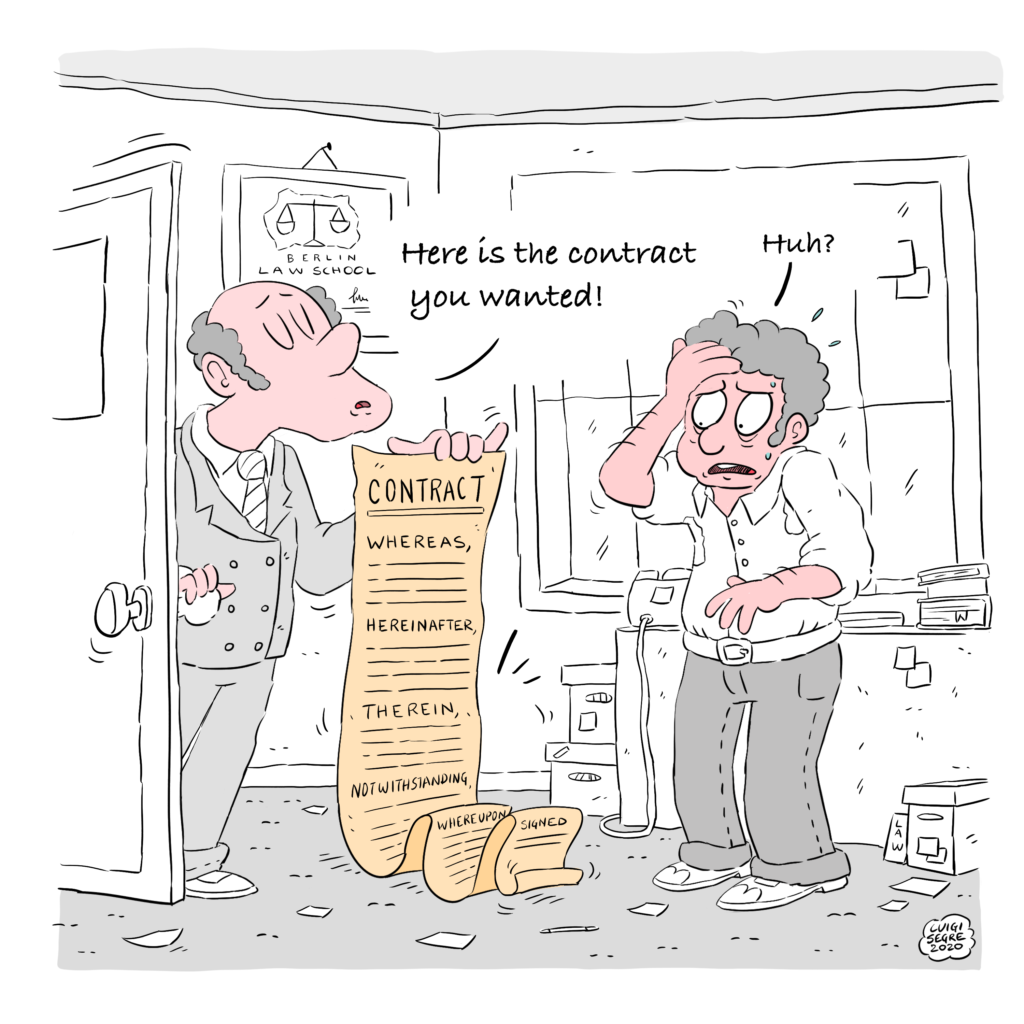- Contracts must reflect the intentions of the parties, therefore, use common sense formulations and plain English.
- Contracts must be concise, so use shorter sentences.
- Also, use sections and subsections effectively.
- Be careful where modifiers are placed because if you put a modifier in a place it does not belong, you can cause confusion. For example: “Being insane, the lawyer asked for his client to be admitted to a mental institution.”
Instead of: “The lawyer asked for his insane client to be admitted to a mental institution.” - Always use words consistently, avoid variation and inconsistency, for example, do not use “buyer” in one paragraph and then “purchaser” in another.
- Write contracts in the active voice because it is easier to read.
- When it comes to contracts apply the KISS principle: Keep It Short and Simple and just long enough to cover the subject. So, write short sentences that are concise and to the point. Keep it simple, by using language that the reader understands.
Remember that convoluted, long sentences, with many commas and relative clauses, are a dead giveaway for non-native speakers.

Tips For Contracts
Contracts must reflect the intentions of the parties, therefore, use common sense formulations and plain English. Contracts must be concise, so use shorter sentences. Also,


